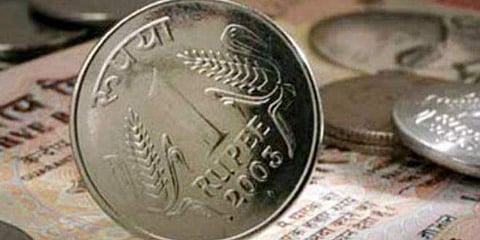

NEW DELHI: The government on Wednesday hiked the price of ethanol extracted from sugarcane for blending in petrol by up to Rs 1.47 per litre for 2021-22 marketing year starting December, as part of its target to achieve 20 per cent doping by 2025.
A higher blending of ethanol in petrol will help cut India its oil import bill and also benefit sugar cane farmers as well as sugar mills.
The Cabinet Committee on Economic Affairs (CCEA), headed by Prime Minister Narendra Modi, gave its approval for fixing a higher price for ethanol derived from different sugarcane-based raw materials under the Ethanol Blended Petrol (EBP) Programme for Ethanol Supply Year (ESY) 2021-22 starting next month.
Giving details, Information and Broadcasting Minister Anurag Thakur said the price of ethanol extracted from sugarcane juice has been increased to Rs 63.45 per litre from the current Rs 62.65 per litre for the supply year beginning December 2021.
The rate for ethanol from C-heavy molasses is increased to Rs 46.66 per litre from Rs 45.69 per litre currently and that of ethanol from B-heavy to Rs 59.08 per litre from Rs 57.61 per litre.
Oil marketing companies Indian Oil Corp (IOC), Bharat Petroleum Corp Ltd (BPCL) and Hindustan Petroleum Corp Ltd (HPCL), which procure ethanol from sugar mills and distilleries, will also bear the GST and transportation costs on the ethanol procured for doping in petrol.
Thakur said the ethanol blending with petrol has touched 8 per cent in the 2020-21 marketing year (December-November) and is expected to reach 10 per cent next year.
India has plans to increase the blending to 20 per cent by 2025.
The CCEA approval will not only facilitate the continued policy of the government in providing price stability and remunerative prices for ethanol suppliers but will also help in reducing the pending arrears of cane farmers and dependency on crude oil imports, an official release said.
It will also help in savings in foreign exchange and bring benefits to the environment.
The government has also decided that oil PSEs (public sector enterprises) should be given the freedom to decide the pricing for 2G (Second Generation) ethanol, as this would help in setting up advanced biofuel refineries in the country.
Already, oil marketing companies (OMCs) are deciding the grain-based ethanol prices.
"The decision to allow Oil PSEs to decide the price of 2G ethanol would facilitate setting up advanced biofuel refineries in the country.
"All distilleries will be able to take benefit of the scheme, and a large number of them are expected to supply ethanol for the EBP Programme," the release said.
The government has been implementing Ethanol Blended Petrol (EBP) Programme, wherein OMCs sell petrol blended with ethanol up to 10 per cent.
The programme has been extended to the whole of India except the Union Territories of Andaman Nicobar and Lakshadweep islands with effect from April 1, 2019, to promote the use of alternative and environment-friendly fuels.
The Centre had notified administered price of ethanol since 2014.
For the first time during 2018, the differential price of ethanol-based on raw material utilised for ethanol production was announced by the government.
Ethanol procurement by state-owned OMCs has increased from 38 crore litre in Ethanol Supply Year (ESY) 2013-14 to contracted over 350 crore litre in ongoing ESY 2020-21.
The government said a consistent surplus of sugar production is depressing sugar prices.
Consequently, sugarcane farmers' dues have increased due to the lower capability of the sugar industry to pay the farmers.
To limit sugar production and increase domestic production of ethanol, the government has taken multiple steps, including allowing diversion of B heavy molasses, sugarcane juice, sugar and sugar syrup for ethanol production.
"Now, as the Fair and Remunerative Price (FRP) of sugarcane and ex-mill price of sugar have undergone changes, there is a need to revise the ex-mill price of ethanol derived from different sugarcane-based raw materials," the release said while explaining the rationale for the CCEA's decision.
Further, to kick-start the second generation (2G) ethanol programme (which can be produced from agricultural and forestry residues, like, rice and wheat straw/corn cobs and Stover/bagasse, woody biomass), a few projects are being set up by oil PSEs taking financial assistance from 'Pradhan Mantri JI-VAN Yojana'.
These projects are likely to start commissioning from ensuing ESY 2021-22, thus a decision on 2G ethanol pricing is desired, the release said.